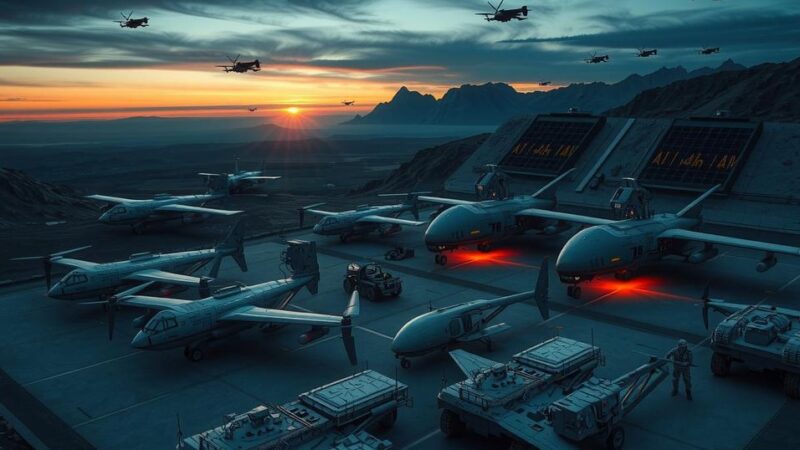The U.S. may strike Iranian targets in Yemen amidst ongoing conflict with Houthi rebels, as stated by national security adviser Mike Waltz. Recent U.S. strikes have led to significant fatalities and regional tensions, prompting criticism from human rights groups. The Houthis have escalated their attacks linked to Palestinian solidarity, while Iran denies supporting them and threatens retaliation.
The United States may consider striking Iranian targets in Yemen as part of its military actions against the Tehran-supported Houthi rebels. This warning was issued by Mike Waltz, President Trump’s national security adviser, emphasizing the need for Tehran to cease its assistance to the Houthis, whose activities have threatened critical shipping routes in the Red Sea and Israel.
Recent U.S. military strikes have reportedly resulted in over 50 fatalities, including civilians, according to Yemen’s health ministry. These developments have raised concerns regarding increased oil prices and potential escalations in the Middle East. Oman expressed significant apprehension regarding the U.S. actions, citing the humanitarian toll and instability they could precipitate in Yemen.
Human rights organization DAWN criticized the strikes, accusing President Trump of exacerbating conflict and violating international law. Sarah Leah Whitson, DAWN’s executive director, stated that Trump’s actions contradict his pledge to avoid unnecessary military entanglements, endangering U.S. interests and further destabilizing the region.
The Houthis, who have targeted vessels headed for Israel and launched rockets in support of Palestinians in Gaza, announced their decision to resume attacks unless Israel lifts its blockade of Gaza. Waltz articulated that the U.S. intends to strike not only Houthi positions but also locations tied to Iran, including Iranian vessels allegedly supplying intelligence to the Houthis.
The Houthis claimed responsibility for an attack on a U.S. carrier in the Red Sea, threatening reciprocation should tensions escalate. Recent U.S. strikes, instigated by Trump, could continue for an extended period, as indicated by reports. Waltz affirmed that responsibility would be attributed to both the Houthis and their Iranian supporters.
Despite the accusations, Iran contends it does not support the Houthis and has warned of retaliation against any attacks. The regional influence of Iran and its allied forces, often referred to as the “Axis of Resistance,” has faced significant challenges, highlighted by recent military setbacks in Lebanon and ongoing pressures in Iraq. Moreover, the U.S. has implied that it might resort to military action against Iran concerning its nuclear activities should diplomatic efforts falter.
In summary, the U.S. administration is considering military strikes on Iranian targets in Yemen as part of an effort to combat the Houthi rebels. This decision arises amid heightened tensions following recent strikes that resulted in civilian casualties, raising concerns about humanitarian impacts and regional stability. Compounding the situation, the Houthis have intensified their attacks, and Iran has denied allegations of support to the rebels, indicating a potential escalation in military actions if negotiations fail.
Original Source: www.newarab.com






